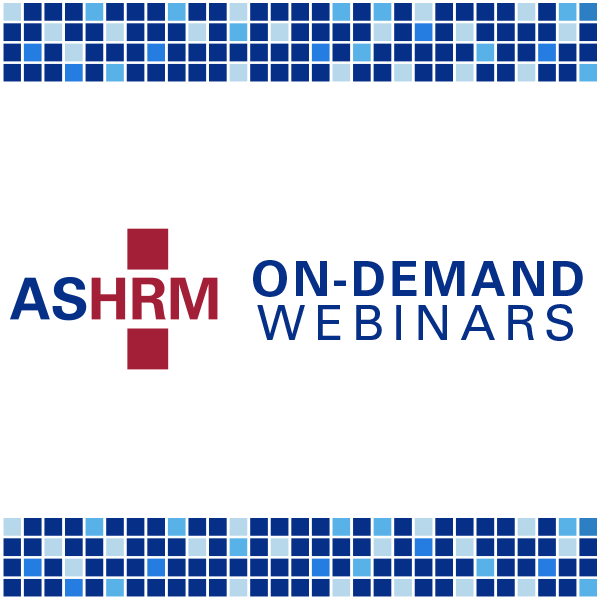Accelerating Change Apparently: Using ACA as a Patient Safety Strategy
Member: $0.00
This webinar explores the value, methodology, and best practices for dissemination of the results of an Apparent Cause Analysis (ACA), conducts a sample ACA, and encourages discussion on this underutilized tool. The webinar guides risk, patient safety, and performance improvement professionals to compare and contrast Apparent Cause Analysis (ACA), Failure Mode and Effects Analysis (FMEA), and Root Cause Analysis (RCA) to use the best tool for the best results to improve patient safety. Risk professionals have many tools in their arsenal to improve processes and/or reduce the potential of an event occurring or recurring. Often RCA is conducted, which may be more time, resources, and human capital than the safety event or “near miss” warrants. FMEA and ACA are two important proactive tools to consider using more frequently.
This webinar explores the value, methodology and best practices for dissemination of the results of an Apparent Cause Analysis (ACA), conducts a sample ACA, and encourages discussion on this underutilized tool.
Objectives:
- • Describe the difference between root cause analysis and apparent cause analysis.
- • Explain how to conduct an effective apparent cause analysis.
- • Identify best practices to communicate and disseminate the action plans resulting from the effective apparent cause analysis.
| Product Code | 322010OD23 |
| ASHRM CE Credits | 1.0 |
| CNE Credits | 1.0 |
| Domain | Clinical Patient Safety |
| Level - Foundational (F), Practitioner (P), Advanced (A) | F |
| Publication Date | 4/19/23 |
| Next Review | 7/01/26 |
| Credit Expires | 7/01/27 |
For questions regarding this webinar, contact ASHRMEd@aha.org
Speaker Bios
Geri Schimmel is passionate about Patient Safety. For over 20 years, her professional energy and focus have been on improving the safety of care received by patients as well as ensuring that patients and their families are actively educated and engaged as the central focus of care. Appointed director of a new Patient Safety Organization (PSO) in 2009, Geri’s role was to establish the a new component PSO while growing a Patient Safety Evaluation System (PSES) process under the PSQIA/AHRQ national guidelines and certification. Additional responsibilities included oversight for simulation education and incorporation of that program in the patient safety program. A nurse with over 30 years of clinical and educational experience, Geri is currently sharing her knowledge and experience to guide and support others as a Patient Safety & Risk professional consultant. Her areas of expertise include higher education curriculum development including train-the-trainer concept development and implementation, facilitation & mentoring, team leadership & collaboration, communication & interprofessional skills & project management – including virtual content. As an active member of ASHRM, Geri has been a member of the Patient Safety faculty for over 10 years and becoming Team Lead 2017. She is a member of ASHRM’s Education and Content Committee. And has been a contributor for ASHRM’s Physician Office Practice Playbook (2015), and a section lead for the Failure Mode and Effects Analysis Playbook (FMEA 2022).
Anne Huben-Kearney is currently a Risk and Patient Safety Consultant providing independent consultation for health care providers, including psychiatry and psychology professionals, as well as health care organizations. Anne has extensive clinical, managerial, and administrative experience in a variety of healthcare settings, such as tertiary care institutions, academic community hospitals, and physician office practices. Anne has served in clinical leadership roles and as a director of performance improvement in tertiary care institutions, as a patient safety officer with an academic community hospital, and as a risk management consultant, vice president and assistant vice president of risk management with companies providing medical professional liability insurance. She has a history of working directly with risk professionals and clinicians to develop individualized action plans to mitigate potential loss based on their unique exposures and risk management needs. Anne is a member of the American Society of Healthcare Risk Management (ASHRM) and the National Association of Healthcare Quality as well as the Massachusetts and Connecticut ASHRM chapters and is the Chair of the Education Committee for the New England Regional Healthcare Risk Management Conference. She is a certified professional in Health Care Quality (CPHQ), Healthcare Risk Management (CPHRM), and Patient Safety (CPPS). She is a Distinguished Fellow in the American Society for Healthcare Risk Management (DFASHRM), serves on the ASHRM Faculty for the Patient Safety Certificate Program, and was elected to the ASHRM Board for 2020-2023. Anne was named "Risk Professional of the Year" in 2019 by the Connecticut Society for Healthcare Risk Management. Anne writes on risk management and patient safety topics, including as a co-author of the ASHRM/American Hospital Association White Paper series on Recognizing and Managing Bias - in the Ambulatory Care Setting (published 2021) and in the Inpatient and Long Term Care Setting (pending publication), as editor of the ASHRM Failure Mode and Effects Analysis (FMEA) Playbook, as a co-author of the chapter “Reducing Enterprise Risk through Diversity, Equity, and Inclusion” for the upcoming new edition of the ASHRM/American Healthcare Lawyers Association Enterprise Risk Management Handbook for Healthcare Entities, as a contributing author for the ASHRM Obstetrical Risk Management Playbook, and as an author of ASHRM Forum articles. Additionally, Anne presents on risk management and patient safety topics on the local, state, regional, and national levels. Anne earned a B.S.N. degree, magna cum laude, from College Misericordia (now Misericordia University) and an M.P.A. degree with a concentration in health care management from the University of New Haven.
Kathy Shostek RN, ARM, MBA, DFASHRM, CPHRM, CPPS is a Risk Management and Patient Safety Professional, currently teaching and consulting with healthcare organizations to reduce risks and improve safety. Prior to becoming an independent consultant, she served as Director, National Accounts, Patient Safety, Risk & Quality supporting the value proposition around improved quality and safe care with cost savings, and claims reductions with ECRI and the ISMP Patient Safety Organization. She is an industry recognized professional with over 25 years of experience in applying risk reduction techniques and innovative approaches to improve patient safety and reduce preventable harm. Kathy’s experience is extensive and includes leadership at the acute care level and a corporate multispecialty physician group practice. Kathy has worked for national consultancies as well as medical malpractice insurance companies assisting health systems, hospitals, and physician practices to develop risk management and patient safety programs and improve the safety of high-risk services. Kathy is past consultant and developer for ECRI’s Healthcare Risk, Quality, and Safety Guidance System and publications, including Physician Office Fundamentals and Critical Care Safety Essentials. She co-authored a chapter with Peter Pronovost, MD in ASHRM’s Risk Management Handbook for Healthcare Organizations, 5th edition. She has a clinical nursing background in emergency services, critical care, and ambulatory surgery. Kathy earned an MBA from DeSales University, Center Valley, PA. She received her nursing diploma from Community Medical Center School of Nursing, Scranton, PA and an ARM from the Insurance Institute of America. She holds the CPHRM certification and is a certified professional in patient safety. Kathy is a past board member of ASHRM (2009-2011), Section Lead for ASRHM’s Patient Safety Playbook (2015-2017), past chair and member of ASHRM’s Patient Safety Task Force and section lead for the FMEA Playbook. ASHRM awarded Kathy the Distinguished Service Award in 2018 for her career contributions to healthcare risk management and patient safety.



